第73章 IV(2)
"I think so, Mother," he answered a little impatiently. "I told her she could attend to it when she was in town some day."
"Of course," his mother persevered, "some of the programs are not very good, but we ought to patronize them and make the best of what we have."
He knew, and his mother knew, that he was not very good at that.
His horses stopped at the water tank. "Don't wait for me. I'll be along in a minute." Seeing her crestfallen face, he smiled.
"Never mind, Mother, I can always catch you when you try to give me a pill in a raisin. One of us has to be pretty smart to fool the other."
She blinked up at him with that smile in which her eyes almost disappeared. "I thought I was smart that time!"
It was a comfort, she reflected, as she hurried up the hill, to get hold of him again, to get his attention, even.
While Claude was washing for dinner, Mahailey came to him with a page of newspaper cartoons, illustrating German brutality. To her they were all photographs,--she knew no other way of making a picture.
"Mr. Claude," she asked, "how comes it all them Germans is such ugly lookin' people? The Yoeders and the German folks round here ain't ugly lookin'."
Claude put her off indulgently. "Maybe it's the ugly ones that are doing the fighting, and the ones at home are nice, like our neighbours."
"Then why don't they make their soldiers stay home, an' not go breakin' other people's things, an' turnin' 'em out of their houses," she muttered indignantly. "They say little babies was born out in the snow last winter, an' no fires for their mudders nor nothin'. 'Deed, Mr. Claude, it wasn't like that in our war; the soldiers didn't do nothin' to the women an' chillun. Many a time our house was full of Northern soldiers, an' they never so much as broke a piece of my mudder's chiney."
"You'll have to tell me about it again sometime, Mahailey. I must have my dinner and get back to work. If we don't get our wheat in, those people over there won't have anything to eat, you know."
The picture papers meant a great deal to Mahailey, because she could faintly remember the Civil War. While she pored over photographs of camps and battlefields and devastated villages, things came back to her; the companies of dusty Union infantry that used to stop to drink at her mother's cold mountain spring.
She had seen them take off their boots and wash their bleeding feet in the run. Her mother had given one louse-bitten boy a clean shirt, and she had never forgotten the sight of his back, "as raw as beef where he'd scratched it." Five of her brothers were in the Confederate army. When one was wounded in the second battle of Bull Run, her mother had borrowed a wagon and horses, gone a three days' journey to the field hospital, and brought the boy home to the mountain. Mahailey could remember how her older sisters took turns pouring cold spring water on his gangrenous leg all day and all night. There were no doctors left in the neighbourhood, and as nobody could amputate the boy's leg, he died by inches. Mahailey was the only person in the Wheeler household who had ever seen war with her own eyes, and she felt that this fact gave her a definite superiority.